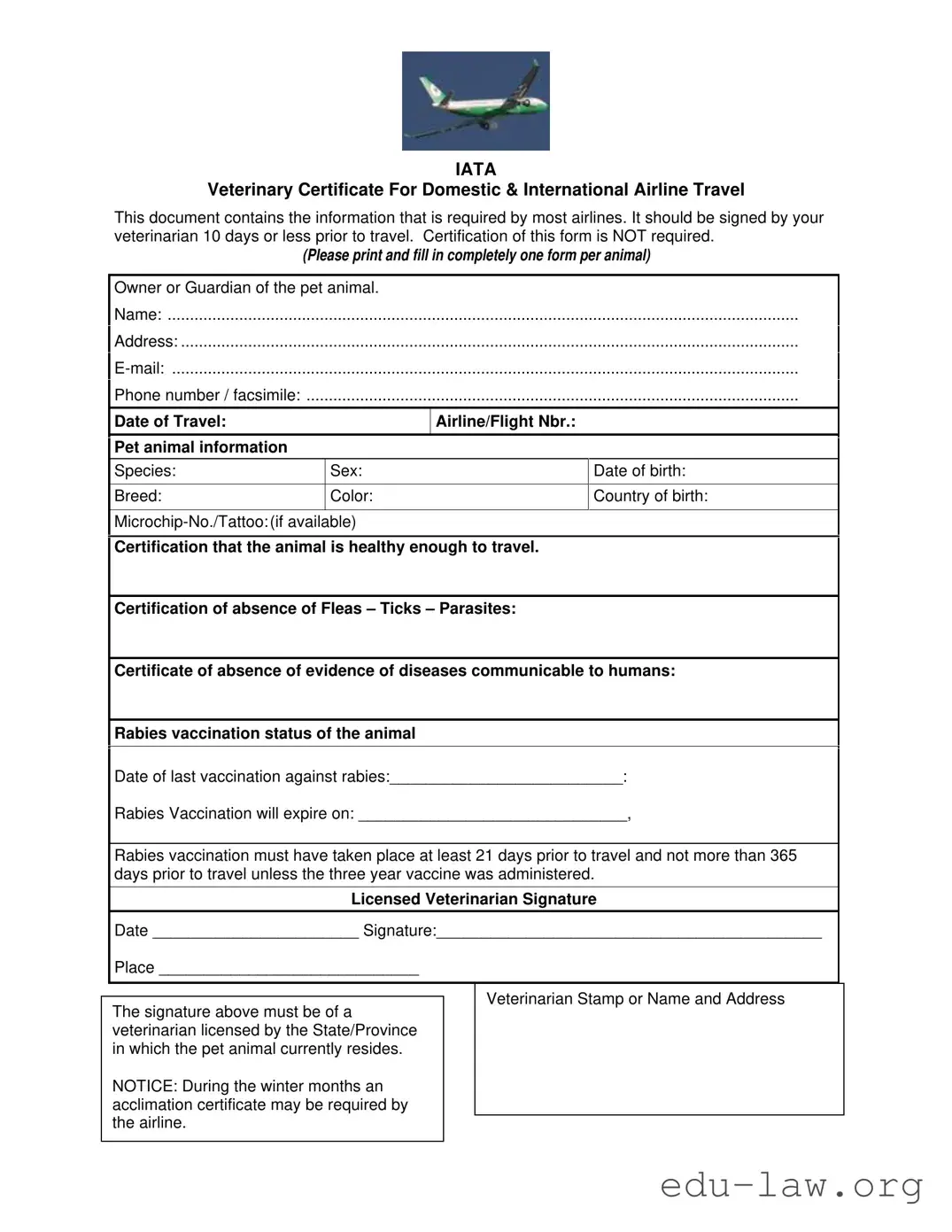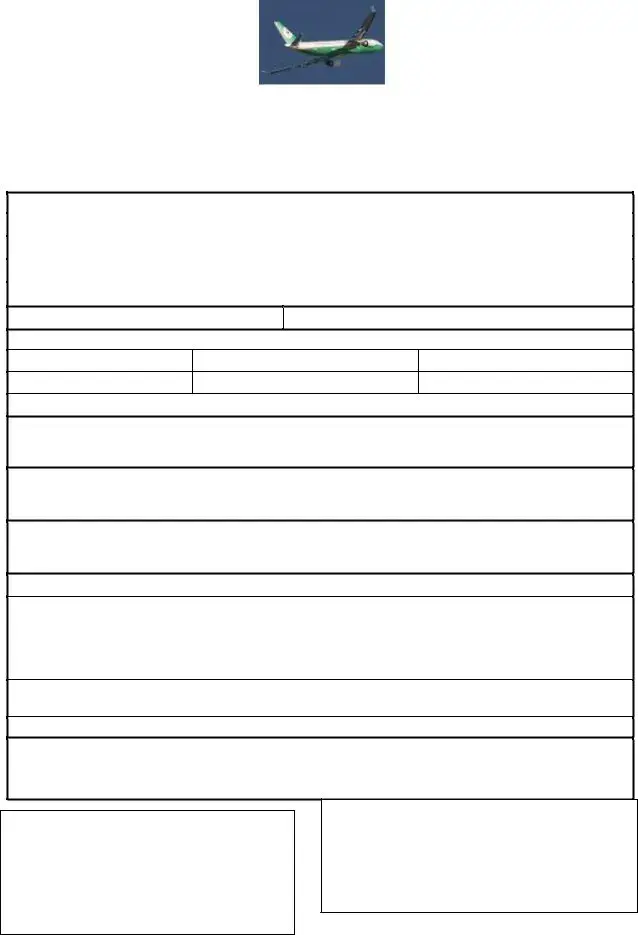What is the purpose of the Veterinary Certificate Travel form?
The Veterinary Certificate Travel form is required for pet owners traveling with their animals, either domestically or internationally. This document provides airlines with critical information about the pet's health and vaccination status, ensuring safe travel for both the animal and other passengers.
Who needs to sign the Veterinary Certificate Travel form?
A licensed veterinarian must sign the Veterinary Certificate Travel form. Their signature verifies the health status of the pet and confirms that all necessary vaccinations, especially for rabies, are up-to-date before travel.
When should the Veterinary Certificate Travel form be signed?
The form must be signed by the veterinarian within 10 days prior to travel. This time frame ensures that the information remains current and reflects the pet's health condition as close to the travel date as possible.
What information is required on the Veterinary Certificate Travel form?
The form requires various details, including the owner's name and contact information, the pet's information (species, breed, sex, color, date of birth, and country of birth), and health certifications related to the absence of parasites and diseases. Additionally, rabies vaccination details, such as the date of the last vaccination and its expiration date, must be included.
Is there a certification requirement for the Veterinary Certificate Travel form?
Certification of the Veterinary Certificate Travel form is not a mandatory requirement. However, filling it out completely and accurately is essential since airlines may depend on the information provided for travel approval.
What should I do if my pet is not up-to-date with vaccinations?
If a pet's vaccinations, especially for rabies, are not current, it is advisable to schedule a visit with a veterinarian well before planned travel. The rabies vaccination must have occurred at least 21 days before travel and not more than 365 days prior for non-three-year vaccines.
What additional requirements might airlines have during winter travel?
During the winter months, some airlines may require an acclimation certificate. This certificate confirms that the pet can safely travel in colder temperatures. Checking with the specific airline for their winter travel policy is recommended to avoid any issues.
How should the form be submitted to the airline?
The completed Veterinary Certificate Travel form, signed by a licensed veterinarian, should be submitted according to the specific airline's requirements. This may include presenting the form during check-in or attaching it to the pet's travel crate. It is crucial to confirm submission methods directly with the airline prior to travel.
Is it necessary to use one form per animal?
Yes, each animal requires its own separate Veterinary Certificate Travel form. This helps ensure that all information is accurate and specific to the individual pet, which aids in the processing of travel arrangements.

